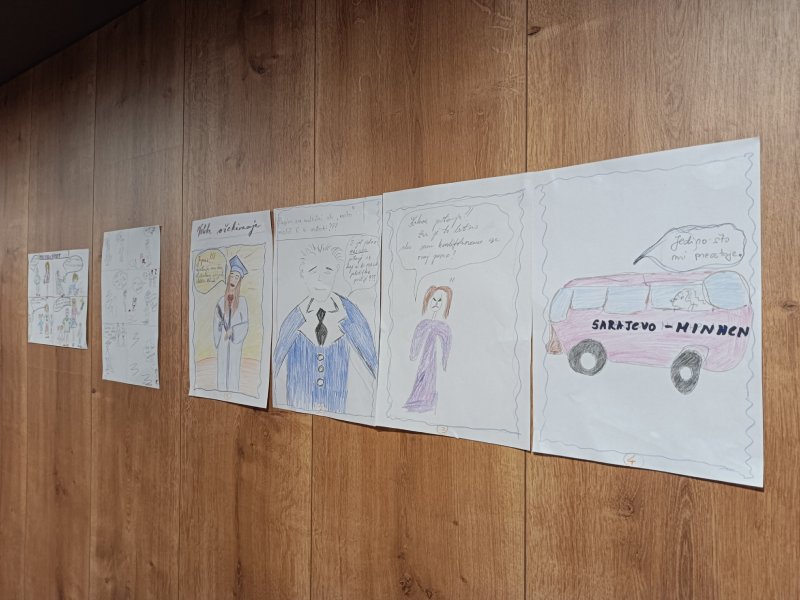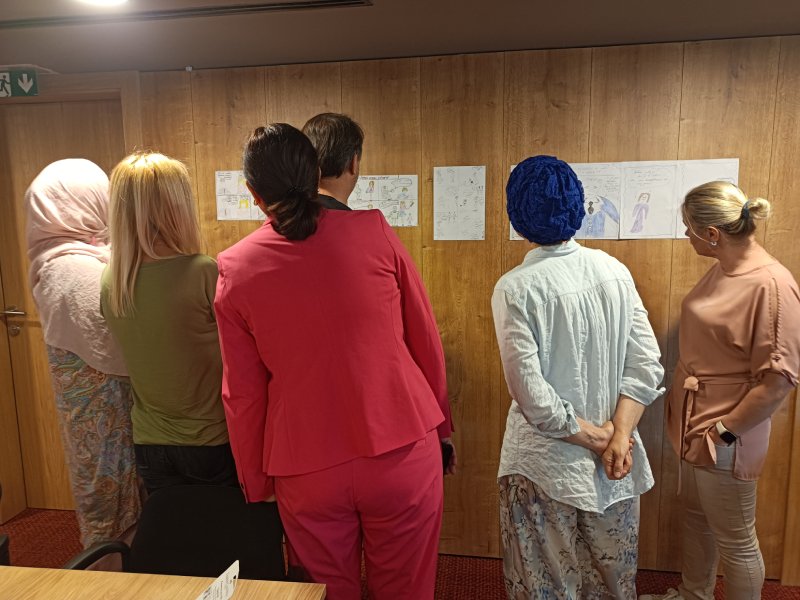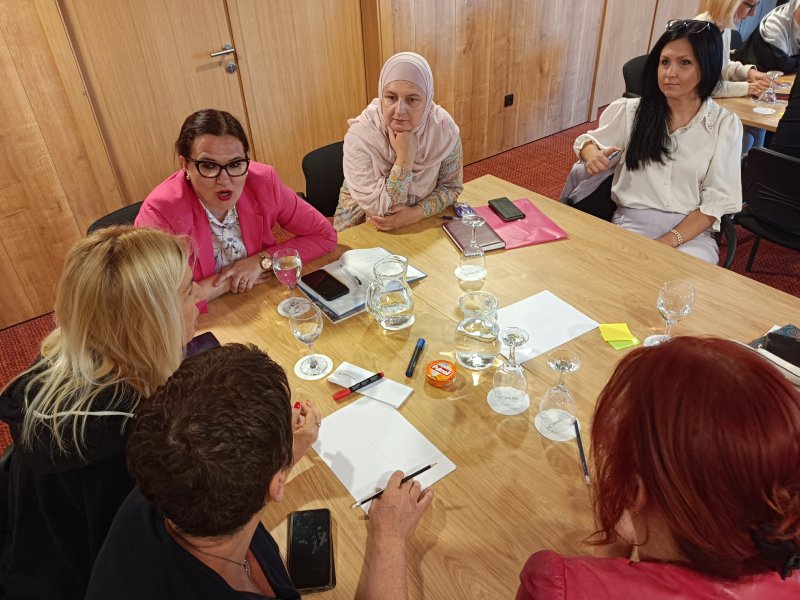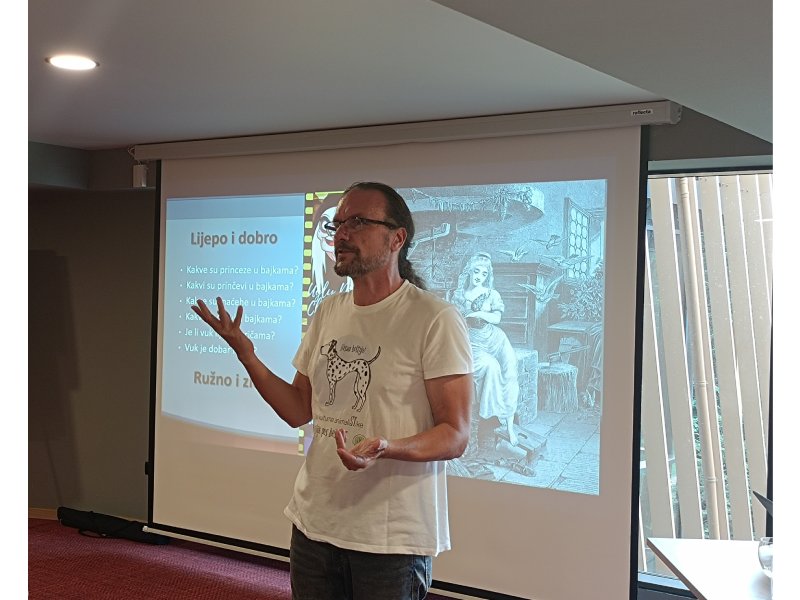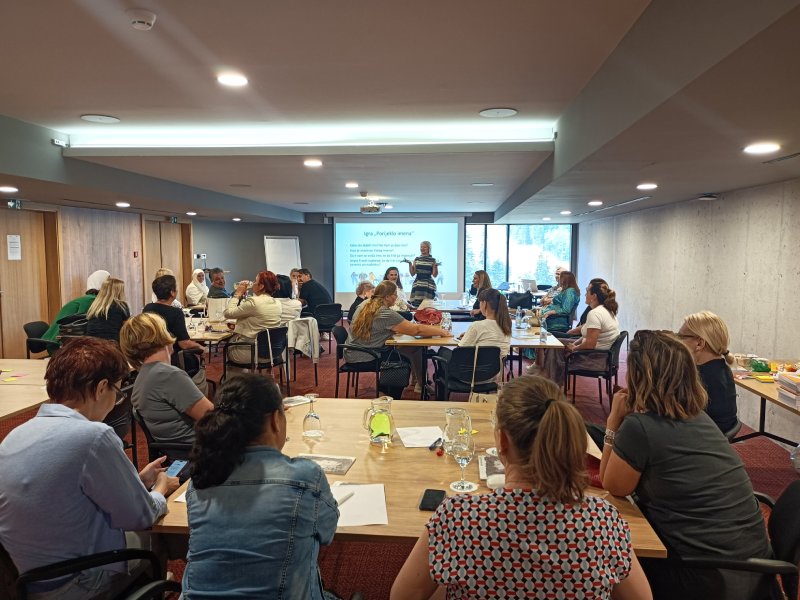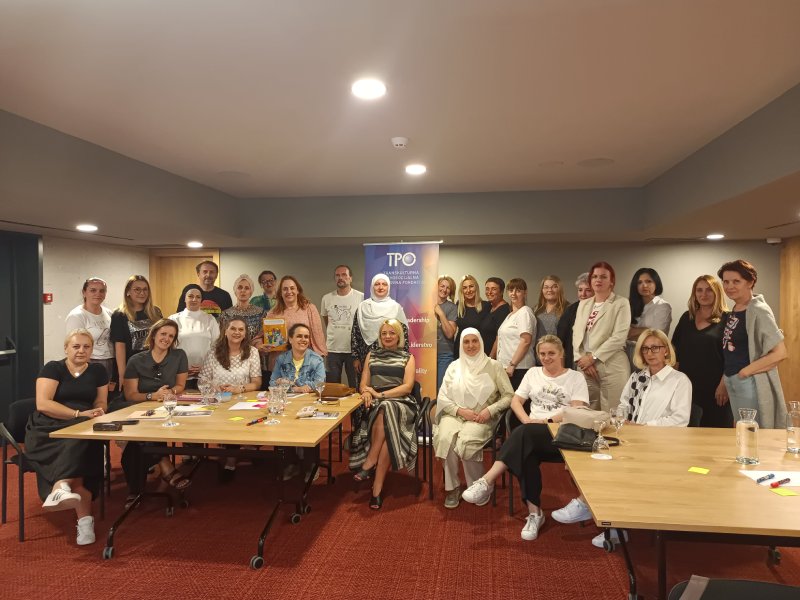The TPO Foundation and the University Gender Resource Center held a two-day education in the period from 25 – 26. June 2024. in Hotel Nomad Bjelašnica, in Sarajevo called “Critical thinking and gender”. A total of 30 participants asked about gender issues and ideas on how to incorporate them into the teaching process.
The education was led by prof. Bruno Ćurko, PhD and M.Sc. Elmana Cerić, and was attended by the teaching staff of primary and secondary schools, as well as teaching and professional staff of universities and Institutes/Ministry of Education from Sarajevo Canton, Herzegovina-Neretva Canton, Zenica-Doboj Canton, Republika Srpska and Tuzla Canton.
The participants analyzed the elements of the film “Mona Lisa’s Smile” which talk about the work of the art history teacher and her struggle to make the students of the women’s college aware of their own potential and deconstructing social norms such as those that young girls should aspire to marry, give birth and raise children.
Also, students researched the use of comics in teaching and how to integrate gender themes into the existing curriculum. Through group work, they created comics on the following topics: how society perceives a woman, what kind of life a young girl dreams of, challenges faced by women in the workplace, etc.
After the philosophical questioning of gender, that is, questioning with the application of the P4C method, one of the participants pointed out: “Imagine that we teach every topic in school in this way. How much the children would be involved and motivated. Instead of telling them: violence, violence, violence; in this way, they would understand much better what peer violence is and what all its consequences are.”
Prof. also made his contribution to education. Bruno Ćurko, PhD, from the University of Split, who initiated the ZoomOut project: an approach to children’s literature from an intersectional perspective. After recalling children’s fairy tales such as Little Red Riding Hood, Cinderella and Pinocchio, the participants discussed what would happen if they changed these fairy tales and spoke Red Riding Hood, Cinderella and Pinocchio. In this way, the participants explored all the existing problems and hidden stereotypes. In the second part of the workshop, stories were created from an intersectional perspective. They noticed (invisible) prejudices in the story and created a new story to work with students that encourages the development of critical thinking.
The activity was realized within the framework of the project University and Gender Mainstreaming – UNIGEM, which financially supports the British Embassy.
